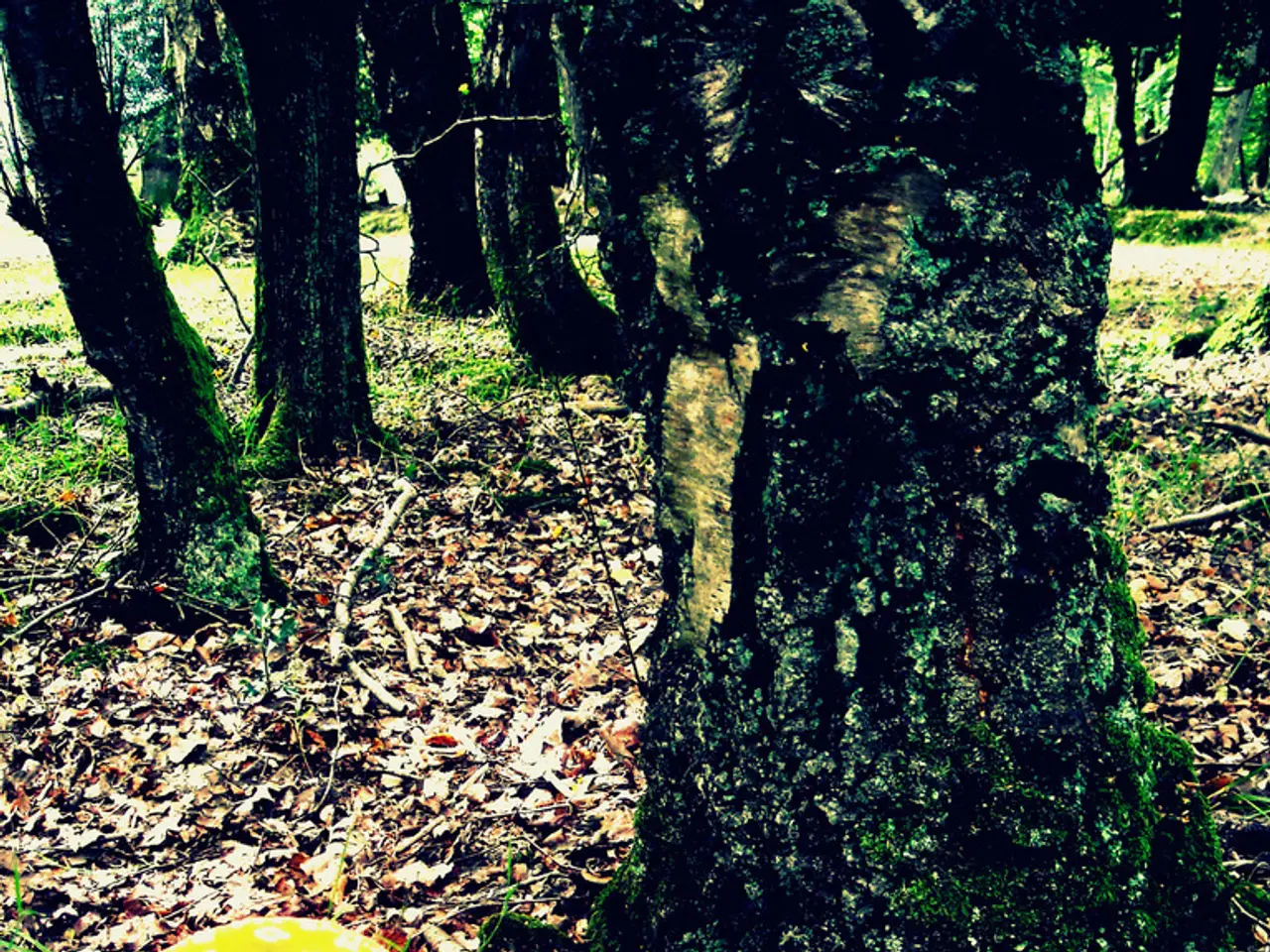Wild Forest Products Harbor Distinct Nutritional Components
Forest foods, also known as wild edibles, are natural treasures that grow in our forests and woodlands. These plant and fungal species offer a wide variety of essential vitamins, minerals, antioxidants, and unique compounds that can significantly contribute to our health and well-being.
One of the standout features of forest foods is their impact on cognitive function. Wild mushrooms, such as shiitake and maitake, contain powerful antioxidants like ergothioneine, which help protect the brain and liver. Additionally, medicinal mushrooms like Lion’s Mane (Hericium erinaceus) are noted for their positive effects on cognitive function. Compounds like hericenones and erinacines stimulate Nerve Growth Factor (NGF) synthesis, promoting nerve tissue growth and potentially aiding memory and neurogenesis. Clinical research has shown improved brain function in adults with mild memory issues after Lion’s Mane supplementation.
Forest foods also support digestive health. For instance, wild greens like nettles, dandelion, and purslane are packed with iron, calcium, magnesium, and potassium, vital for muscle function and overall cellular activity. Moreover, many forest foods contain prebiotics, compounds that support the growth of beneficial bacteria in the gut.
Forest foods are not only beneficial for our bodies but also for our minds. They contain high levels of vitamin D, a nutrient that is typically harder to obtain from plant-based sources. This vitamin plays a crucial role in maintaining healthy cognitive function and protecting against neurodegenerative diseases, such as Alzheimer's and Parkinson's. Wild berries, such as blueberries, raspberries, and blackberries, are rich in antioxidants that support cardiovascular health, cognitive function, and have anti-inflammatory properties.
Wild-harvested nuts like walnuts and pine nuts are a natural, sustainable way to support the body’s need for essential omega-3 fatty acids. These nutrients are crucial for brain health and cognitive performance.
Forest foods are also a sustainable and environmentally friendly food source. By consuming these natural, locally sourced foods, we can reduce our carbon footprint and support biodiversity.
Forest exposure itself (forest bathing) complements these benefits by enhancing immune function and reducing physiological stress markers, which benefits overall health. Forest bathing also improves cognitive health, including memory, attentional control, and cognitive flexibility, by allowing mental refreshment and stress reduction.
In summary, consuming forest foods like medicinal mushrooms and chironji nuts, along with the experience of forests, can support cognition, digestion, immunity, and psychological well-being. These valuable components can be integrated into holistic health strategies for a healthier, happier life.
- The powerful antioxidants found in wild mushrooms like shiitake and maitake can protect the brain and liver, enhancing cognitive function.
- Medicinal mushrooms such as Lion’s Mane (Hericium erinaceus) promote nerve tissue growth and potentially aid memory and neurogenesis in adults with mild memory issues.
- Wild greens, such as nettles, dandelion, and purslane, provide essential minerals for muscle function and overall cellular activity, also supporting digestive health.
- Wild berries, like blueberries, raspberries, and blackberries, are rich in antioxidants that support cardiovascular health, cognitive function, and have anti-inflammatory properties.
- Wild-harvested nuts like walnuts and pine nuts offer essential omega-3 fatty acids, crucial for brain health and cognitive performance.
- Consuming forest foods not only benefits our physical health but also contributes to a sustainable and environmentally friendly food source.
- Forest exposure, or forest bathing, boosts immune function, reduces stress markers, and improves cognitive health, including memory, attentional control, and cognitive flexibility.
- Incorporating forest foods like medicinal mushrooms, chironji nuts, and the experience of forests into holistic health strategies can lead to a healthier, happier lifestyle, supporting cognition, digestion, immunity, and psychological well-being.




